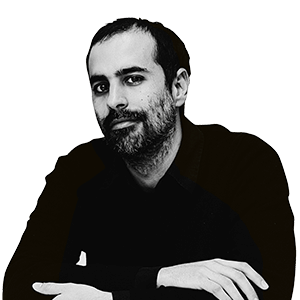Benedict Cumberbatch: "I want to make good art, whether it's in Hollywood or an underground theater."
The actor receives the Màquina del Temps award at the Sitges Film Festival and presents the drama 'That Thing with Wings'.


SilosHe is Marvel's Supreme Sorcerer, the best Sherlock Holmes of recent decades and also the most anticipated star of this edition of the Sitges Film Festival. Benedict Cumberbatch (London, 1976), twice nominated for an Oscar – for The imitation game and The power of the dog–, visited the festival this Monday to present That thing with wings, a psychological drama by Dylan Southern starring a comic book artist overwhelmed by the death of his wife, unable to cope with his job, raising two children and, above all, his mental health alone. Twisted by his own grief, the artist begins to express his grief in the form of the anthropomorphic crow that stars in the graphic novel he's working on; a fantastical presence (and ambivalent in its intentions) that pushes the film towards the territory of the gothic horror tale.
The festival took advantage of Cumberbatch's visit to present him with the Màquina del Temps award, an accolade that is fully justified by his contribution to fantasy in roles such as Doctor Strange or Khan. Star Trek Into Darkness"That's pink, delicious and peculiar, and that's a bit how I feel right now," said the actor upon receiving the trophy, a miniature of the genius of The time machine (1960). Cumberbatch commented on the impression of watching the montage of his films, which the festival had presented him with a few seconds earlier. "It's like seeing yourself from outside your body," he said. "It's a very strange sensation, I wouldn't recommend it to anyone." He also confessed to being "a big fan of Spanish cinema" and regretted that his visit wasn't longer: "Maybe if I were to become miniaturized and could sit in this chair..." he added, pointing to the award.
Later, in a meeting with the press and the public, Cumberbatch spoke about the themes he addresses. That thing with wings, which is based on the book by Max Porter Grief is that thing with wings, published in Catalan in 2016 by Rata. "Obviously, if you live long enough and love, you will experience loss; it's human nature," he noted. "And, sadly, the way the world is, you don't need to grow old to experience great loss. It's a little rarer for men to talk about grief, but it's important that we talk about vulnerability and being overwhelmed by something unexpected and very unpleasant is part of the extraordinary kaleidoscope of life."
To prepare for the role, the actor also had to build on his character's previous relationship with his wife and children. "If you do it well, it allows you to access places in your memory and feel the pain of absence. And it allows you to exist in the emotion of the character," he explains. During filming, he adds, what most helped him connect with grief was hearing his children's dialogue in the show talking about their mother. "It affected me a lot. When I watch the movie, that's when I cry," she says.
"Wonderful and Chaotic" 7-year-old creatures
One of the challenges of filming for Cumberbatch was working with the two child actors playing his sons, who had never acted in front of the camera. "I came out of the casting very scared, because they were two wonderful but chaotic seven-year-olds," the actor recalls. "So I tried to treat them like the children they are, but behave like an adult, and also as the producer who has to make sure nothing happens to them, and as the colleague who has to act with them, and it was."
It was also difficult, Cumberbatch admits, acting with the actor playing the crow with a remote-controlled mask. "Normally it's good to work with something real and not a green screen, because you can hold it and feel it, but when it's a fantastical creature like the crow, it can be difficult for both of us," he says. And he has compared the experience to his contribution to the trilogy ofThe Hobbit, in which he played the voice and movements of the dragon Smaug: "Sometimes it's easier to put on a motion capture suit and crawl around pretending you're a 400-year-old, fire-breathing, flying dragon."
As for the decision to produce the film, he attributes it mainly to the connection with Porter's novel. "It gave me a very cinematic vision, and I was fascinated by the character of the raven and all the chaos that comes with it," says the actor, who emphasizes that he doesn't mind the low budget but rather seeing the possibility of making a good film. "I grew up on the kinds of films that are very difficult to make now, films by filmmakers who have a hard time getting anything produced for them," he says. "I'm not lowering myself to make a film like this; on the contrary, I feel like I'm detaching myself. All I want to do is in theater or on television, in an art form or not, I don't care. Radio play."
The actor also reflected on his career, saying that he never actively sought out fantasy films, but that playing the role of Sherlock Holmes in the BBC series changed everything. "I knew I'd get a lot of attention because it was such an iconic character, and then big opportunities like Doctor Strange started coming my way," he admits. "But the only goal I had when I started was to make a living, play challenging roles, and work with people I respected and who respected me. That was it." Needless to say, he's achieved it.
